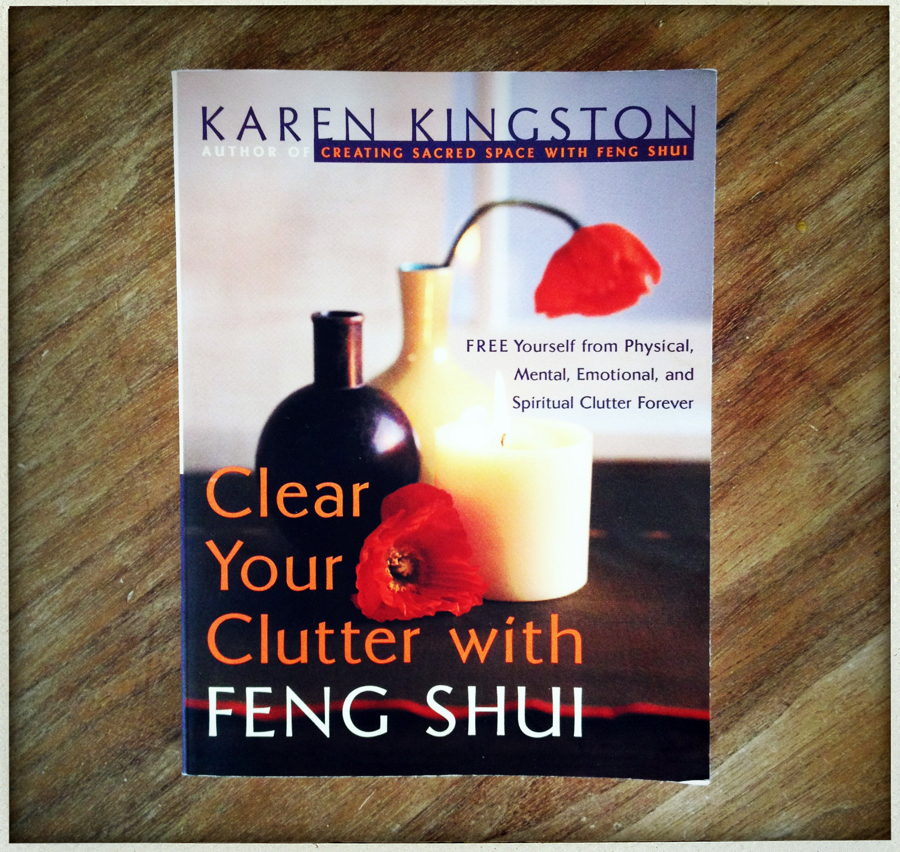MInimalism and Clutter Conflict
If you’re on any kind of minimalist journey, or even have one in mind, you’re going to be getting rid of stuff. We hear a lot about The Life-Changing Magic of Tidying Up and the peace and serenity that an uncluttered home can bring. At the same time, we hear a lot about The True Cost of the impact our discarded clothing has on the environment. We’re faced with statistics on the small percentage of donated items that even make it into the thrift store (or to charitable causes), despite our good intentions. And thus, many of us might start out with great enthusiasm for decluttering, only to be faced with the guilt that our discarded items might end up in the trash. This conflict can bring things to an impasse, keeping us surrounded with clutter we don’t know how to get rid of responsibly. And my response to this conflict is that sometimes you just have to get the clutter off the premises and throw it away. No, it’s not ideal. No, it’s not the most environmentally sound habit to get into. But finding the will to let go of the clutter in the first place can be difficult enough- procrastinating on your discard pile because you’re “going to sell that on Ebay” ends up being a dead end for many people.
Now I’ve mentioned selling clothing items on Ebay myself, but the reasonable window of time for me to list the items has passed, so I’m sending the lot to Thredup instead. For clothes, this can be a great alternative, almost as easy as donating. But what about everything else? My view is, if you haven’t listed in on Craigslist or Ebay within a week, and it hasn’t sold within another week, you’re probably better off just putting it on the curb (or for free on Craigslist). There’s always a slight chance someone would pick up a decent piece of furniture, but most things will end up with the rest of your trash: in a landfill. I think if we really want to live free of clutter, we have to accept this unfortunate reality- and accept our mistakes in accumulating the stuff in the first place. Hopefully we can learn something about consumption along our minimalism journey, but if you imagine for a minute the amount of waste created by your local coffee shop or construction site in just one day, you will realize that your pile of junk is but a drop in the bucket. And delaying getting rid of your discard pile can be dangerous territory for anyone who is clutter-inclined. I myself am a long-time minimalist and rarely have much clutter to deal with. I’m notorious for getting rid of unnecessary things. I have extensive experience with both Craigslist and Ebay and have the resources to use them. But even I can accumulate clutter when left unchecked. If you’ve seen my most recent discard pile, you’ll see just how insidious clutter can be. I’ve ended up with about 40 pieces of excess or “outgrown” clothing after only 8 months of weight loss. If I don’t deal with it at this point, it could start to become a problem (clutter tends to grow: the more you have, the more accumulates).
So let’s say you’ve let go of your clutter, you’ve embraced a more minimalist lifestyle, and you’ve seriously considered your consumption habits. Something funny can start to happen: you find yourself replacing those very items you were so keen to get rid of. This can certainly happen with clothes- YouTube is full of “closet declutter” videos where the idea is simply to make room for this season’s new clothes. But it can also happen with other items- usually when you buy items with a more minimalist aesthetic: that all-white coffee table or that sleek new water bottle that had a perfectly good counterpart and really didn’t need replacing. So there is a point where discarding items can just be wasteful. But this is really a problem for more “advanced” minimalists- people who are no longer buried in clutter. Most people looking to declutter have a tendency to hang onto too much. So be realistic when you ask, “What if I need it someday?” If it’s unlikely you’ll need it, if you don’t know if you’ll need it, or if it’s easy to replace, then by all means let it go.
Marie Kondo suggests that you don’t use clear garbage bags when decluttering so you’re not tempted to claw things back as the bag sits in your hallway awaiting a trip to the charity shop. She also recommends not telling your family members when you’re decluttering (your own stuff, of course) so they’re not tempted to claw things back for themselves. In Karen Kingston’s book Clear Your Clutter With Feng Shui, she recalls an incident where a client was so afraid of discarding something she might need, she slept with several full garbage bags in her bedroom so she could rescue things in the middle of the night if necessary. Suffice it to say, she didn’t need to. She let it all go.
